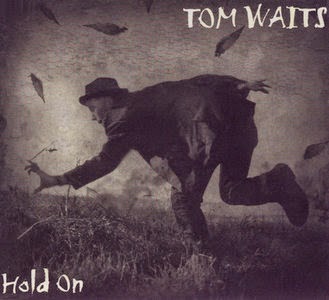One
of the best was born today in 1949. Let’s hear it for Mr. Tom Waits!
I’ve
already posted on a song of his from the Seventies, three from the Eighties,
one from the Nineties. For today, I initially thought I’d go back to the first
album of his that made a big impression on me: Small Change (1976) with
its great lead-off track “Tom Traubert’s Blues.” That song put Waits on my
mental map as someone to be reckoned with. But he didn’t sustain that level of
effort and it wasn’t till that string of albums in the Eighties (I’ve featured
a song from each) that I was solidly in Waits’ camp. And that sent me back to
pick up some things I’d overlooked, and then came Bone Machine (1992)
and I’ve taken a song from that as well. Which leads me to Mule Variations
(1999) because it’s one of his best and it came along after Bone Machine
had pretty much established a highwater mark not likely to be topped. Is Mule
Variations “better”? I can’t rightly say, but I can say that it satisfies
me more at this late date in my own odyssey. Waits, you’ll note, turned 50 the
year it came out. So, yeah, let’s go with that one.
There has been worthwhile work released
throughout this century too, but I’m not ready to dredge up the two albums of
2002 that derive from theatrical pieces, and Real Gone (2004) is a
stretch into a new sound for Waits, very percussive and almost, at times,
techno. I’m not as comfortable with it, though there are some standout things
on there, like “Hoist That Rag” and “Sins of the Father” and “Make It Rain.”
More recently, there were all those extra tracks on Orphans, which I
posted about back when it came out in 2006, a year that, with Dylan’s Modern
Times and Springsteen’s We Shall Overcome and Cash’s posthumous Hundred
Highways seemed primed to return us to some kind of Beat essence of the
Slump. But let’s not go there, huh, kids? And 2011 brought Bad as Me,
which runs a nice gamut of the many moods of the man, but I’m not able or
willing to pick one to be our tune of today.
From
Mule, there were several candidates. I picked today’s song because, hell, it’s Sunday, and
because I saw Waits perform it on Letterman when the album was released.
And you can too, here. If you been
following these posts with any degree of regularity, you may have noticed that
there are a few Jesus-inspired songs of one form or another and Waits adds a
memorable tune to that list. The album boasts songs with the romanticism of his
best efforts—“Hold On”—and with a great sense of the rambling existence that no
one registers so well—“Cold Water”—and of a lusty, earthy joy—“Filipino Box
Spring Hog”—and wistful regret—“The House Where Nobody Lives”—as well as eerie
paranoia—“What’s He Building in There”—and chastened vigor, “Pony.” But
“Chocolate Jesus” has even more to offer. It’s a sacrilegious ditty that is
also, in its way, quite reverent. Joyce, in Ulysses, describes his man
Bloom considering the warm, fuzzy feeling that comes from ingesting the Host at
Mass. And why not even more contentment from digesting a chocolate Jesus? “Got
to be a chocolate Jesus / Make me feel so good inside.”
Not
that the speaker is saying the chocolate is blessed. He’s ingesting a chocolate
in the form of Christ. And in that image Wait combines the hopes for the
Resurrection with the hopes for a satisfying dessert. Both are close to the
essence of a certain material spiritualism that the religions of the U.S. seem
to grasp as their raison d’être. The song sounds like a sleepy Sunday,
early, with that plunked banjo and looped cock a-crowing (Peter denied his
Master before the third). The speaker isn’t off to church but to “fall on my
knees every Sunday / At Zerelda Lee’s candy store.”
Then
there’s that delightful rejection of lesser temptations—“don’t want no Abba
Zabba, don’t want no Almond Joy.” And the image that unites our Savior with the
mighty Mississippi (into which the Big Muddy flows): “He flows like the Big
Muddy, but that’s OK / Pour him over ice cream for a nice parfait.” Yum, yum, a
heavenly treat.
One
can go on about how religion—the “opium for the masses” in Marx’s
formulation—can easily provide pablum instead, or confection. The point is that
the masses want what’s good for them and what’s good for them should taste good
too. And with that you can merge the hucksterism of televangelists with the
hucksterism of the manufacturer of chocolate treats. It should all go down
smooth and make you crave more. Every Sunday. Hallelujah.
What’s
more, if you’ve lived a Catholic childhood, then you know how intimately
chocolate is associated with the Resurrection. Come Easter Sunday we’re biting
ears off chocolate bunnies and letting chocolate eggs melt in our mouths. Would
Jesus in his chocolate incarnation be out of place in the Easter basket?
Break
off a piece, pass it 'round. Do this in remembrance of me. And lo! It came to
pass.








